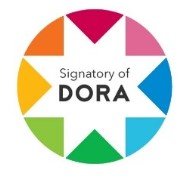Continuous professional development of the teacherfor inclusive education based onteaching by competence
DOI:
https://doi.org/10.59654/1zkt2j91Keywords:
Ongoing training, educational inclusion, competency-based teaching, disabilityAbstract
the current context, society seeks to redefine education and the continuous training of teachers and future professionals, with a focus on inclusion and competency-based methodology. This approach aims to empower educators to promote inclusive education with diverse perspectives, fostering changes to ensure effective outcomes and adaptation to high-quality methodological strategies. The main purpose of the article is to establish a relationship of inclusive training with teaching, based on competency-based methodology, emphasizing that this involves profound changes at all educational levels and requires a commitment to educational excellence to achieve optimal teacher training and inclusion in all educational contexts. The article integrates these concepts into a research project that aims to analyze ongoing training to build pedagogical knowledge and promote competency-based teaching, as fundamental factors for developing complex thinking and advancing in the educational field.
Downloads
References
Casanova, M. A. (2018). Educación inclusiva por que y para qué. Revista Portuguesa de Educação, 31, 42-54. https://www.redalyc.org/journal/374/37458867001/html/
Castillo, C. G. E., Sailema, M. J. E. Chalacón, M. J. B. et Calva, A. A. (2022). El rol del docente como guía y mediador del proceso de enseñanza. Ciencia Latina Revista Científica Multidisciplinar, 12. https://ciencialatina.org/index.php/cienciala/article/view/ 4409/6764
Cejas, M. M. F., Rueda Manzano, M. J., Cayo Lema , L. E., & Villa Andrade, L. C. (2019). Formación por competencias: Reto a la educación superior. Revista Ciencias Sociales, XXV(1). https://www.redalyc.org/journal/280/28059678009/28059678009.pdf
Davini, M. C. (2015). La formación práctica docente. Editorial Paidos .
Díaz, Q. V. (2006). Formación docente, práctica pedagógica y saber pedagógico. Laurus, 12, núm. Ext, 88-103. https://www.redalyc.org/articulo.oa?id=76109906
Díaz, Q. V. (2013). La reflexión epistemológica en la práctica pedagógica como entidad de la formación docente. En D. Izarra y R. Ramírez (Comps.), Docente, enseñanza y escuela. (pp. 21-37). Caracas: Universidad Pedagógica Experimental Libertador. http://ciegc.org.ve/wp-content/uploads/2022/12/1-La-reflexion-epistemologica-en-la-practica-pedagogica.pdf
Flórez, O. R. y Vivas G. M. (2007). La formación como principio y fin de la acción pedagógica. Revista Educación y Pedagogía, XIX(47), 165-173. https://bibliotecadigital.udea.edu.co/bitstream/10495/7041/1/OchoaRafael_2007_formacioncomoaccionpedagogica.pdf
Gorodokin, I. C. (. (2006). La formación docente y su relación con la epistemología. Revista Iberoamericana de Educación, 1-9. https://rieoei.org/historico/deloslectores/1164Gorodokin.pdf
Imbernón, M. F. (2011). Un nuevo desarrollo profesional del profesorado para una nueva educación. Revista de Ciencias Humanas, 12 (19), 75-86. http://revistas.fw.uri.br/index.php/revistadech/article/view/343
Monereo, C. (2010). La formación del profesorado: una pauta para el análisis e intervención a través de incidentes críticos. Revista Iberoamericana de Educación. 52, 149-178. https://rieoei.org/historico/documentos/rie52a08.pdf
Morin, E. (1998). Introducción al pensamiento complejo. Gedisa Editorial.
Tobón, S. (2013). Formación integral y competencias. Pensamiento complejo, currículo, didáctica y evaluación. 4ta. Ed. ECOE.
Downloads
Published
Issue
Section
License
Copyright (c) 2024 Revista Digital de Investigación y Postgrado

This work is licensed under a Creative Commons Attribution-NonCommercial-ShareAlike 4.0 International License.
Esta licencia permite a los reutilizadores distribuir, remezclar, adaptar y desarrollar el material en cualquier medio o formato únicamente con fines no comerciales, y solo siempre que se atribuya al creador. Si remezclas, adaptas o construyes sobre el material, debes licenciar el material modificado bajo términos idénticos. CC BY-NC-SA incluye los siguientes elementos:
![]() POR: se debe dar crédito al creador.
POR: se debe dar crédito al creador.![]() NC: Sólo se permiten usos no comerciales de la obra.
NC: Sólo se permiten usos no comerciales de la obra.![]() SA: Las adaptaciones deben compartirse en los mismos términos.
SA: Las adaptaciones deben compartirse en los mismos términos.











